Exclusive Dan Martin Interview: Lessons in success
Irishman's perspective on his 2014 campaign
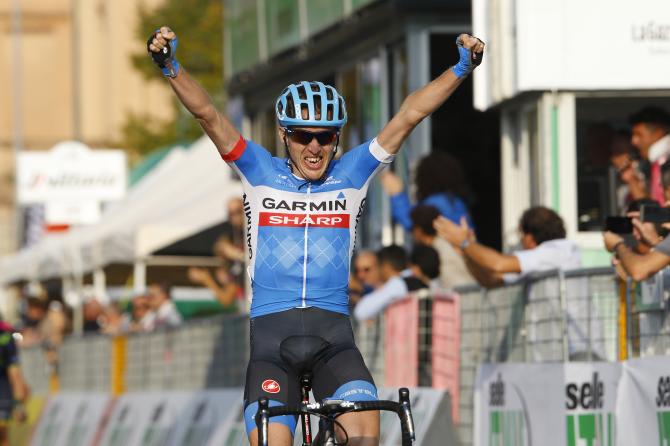
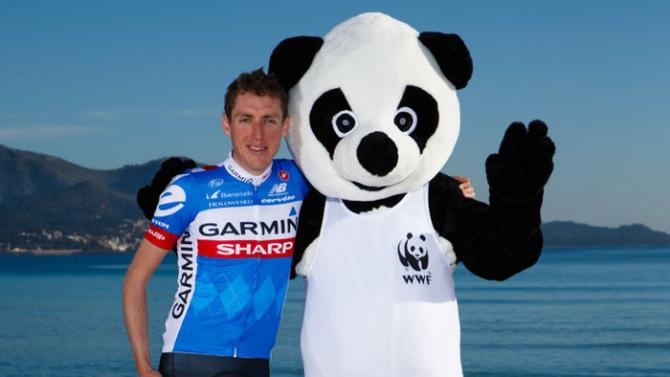
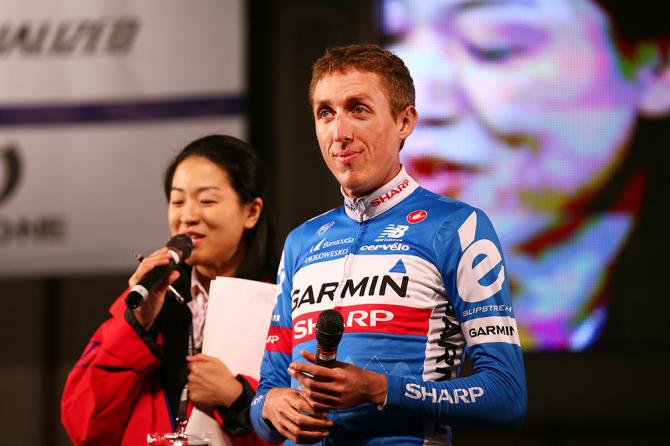
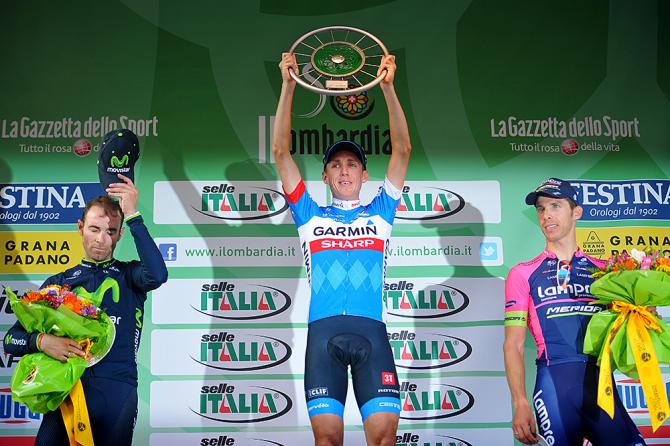
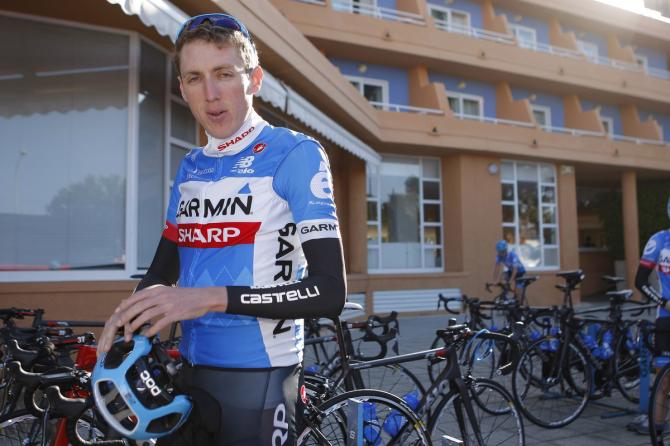
When Dan Martin shot away in the final kilometre of the Tour of Lombardy, comparisons were instantly drawn with Ireland's last winner of the Race of the Falling Leaves. Like Sean Kelly in 1991, we were told, he had salvaged his season by landing a classic victory at the death.
It's a funny thing, perspective, because the thought was not exactly weighing on Martin's mind when he lined up in Como that morning.
"I don't dwell on things so much, so I wasn't putting pressure on myself to save my season. Before Lombardy a lot of people were saying it to me, but it was really just another race," Martin tells Cyclingnews over the phone from Girona, finally at rest after a trying but ultimately successful campaign.
Not that Martin would ever couch his season in such absolute terms. Indeed, his outlook can at times seem a curious blend of sports psychology maxims and an almost Camusian indifference to the absurdity of rating and ranking each and every achievement.
"All you need is one good result a year and it's deemed quite a success," he deadpans. "No, I think I've learned a lot of lessons but I don't really look at it in terms of a good season or a bad season, or whatever. Every year is a good year because you learn different things and you grow as a person. And this year, I think I've learned from having the injury and fighting back from that."
For a long, long time, Martin's year threatened to go down in the annals as an entirely ill-starred one. In April, he was on the brink of a repeat victory at Liège-Bastogne-Liège when his wheels slipped from under him on the final corner in Ans. Two weeks later, his Giro d'Italia ended before it had even begun when he crashed and broke his collarbone in the opening team time trial in Belfast.
Yet a brief blip after that abortive Giro apart – "I kind of put my head in the sand and that's not good to do," he admitted – Martin was largely stoical in his response to those setbacks. "Yeah, it happened but you can't change it," he explains. "If the crash is your fault then you've got a bit more regret but both times I was sitting on the floor asking myself what had happened, so I think that makes it a lot easier to get over."
Get The Leadout Newsletter
The latest race content, interviews, features, reviews and expert buying guides, direct to your inbox!
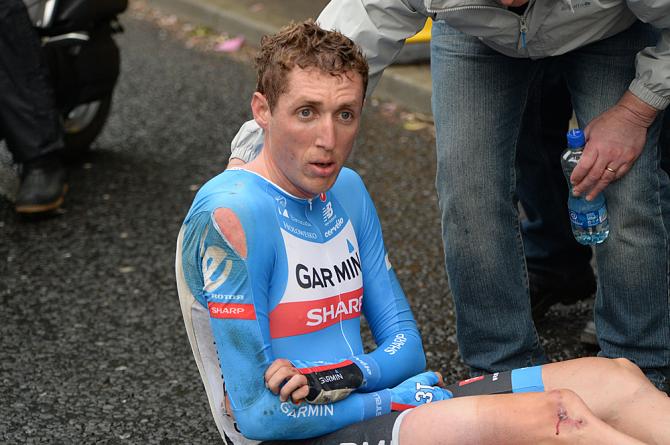
While his canny victory at Lombardy will grab the headlines – "It's only a race, you've got nothing to lose so you might as well try to win," he says nonchalantly of that winning move – Martin seems as almost prouder of his combative showing at the Vuelta a España, where he survived a heavy fall in the third week to claim seventh place overall in Santiago di Compostela.
"I had that crash towards the end and the antibiotics really took it out of me. I really felt that in the two weeks after the race, when I was just a shell," he recalls. "It's been overshadowed a bit in the outside world because I'm the only one who knows what I went through in that last week, and that's why it gives me an incredible amount of satisfaction."
That seventh place also marked Martin's maiden top ten finish in a Grand Tour and, despite his late crash, it was the first time that he had not fallen away to a greater or lesser extent in the final week of racing. In years past, Martin had tended to line up at the great stage races with a certain degree of wariness, never fixing himself a particular overall target and time and again trotting out the mantra that a three-week race is simply a sequence of 21 successive one-day races.
That refrain, he insists, is neither a means of downplaying expectation nor a symptom of a lack of self-belief, but a mere statement of fact. "It's not really a confidence thing about aiming for GC, it's just that mentally I cope better when I'm not looking too far ahead. I still prefer one-day races and shorter stage races because in grand tours you get tired at the end and I don't enjoy that feeling of racing fatigued," he says.
In any case, Martin does not believe that living from day-to-day and carving out a high placing over three weeks are mutually exclusive states of mind. "I'd still prefer to go in to the race riding aggressively and not miss opportunities, and I think you can do both – look for stages and ride for the overall. I'm not one to state ambitions, but I'm never going to a Grand Tour and not aiming to ride GC either."
Indeed, the route of the 2015 Tour de France seems ideally suited to a rider with Martin's approach: the classics-style terrain in the opening week means that overall contenders will have little option but to ride with their tails up from the get go. "I think it suits my style because you have to be really switched on every day. It's probably the course that relates best to the 21 one-day races in-a-row philosophy," he says, with a particular eye to the haul up the Mur de Huy on stage 3. "I've got experience and I know how to ride that climb, so it could pay dividends."

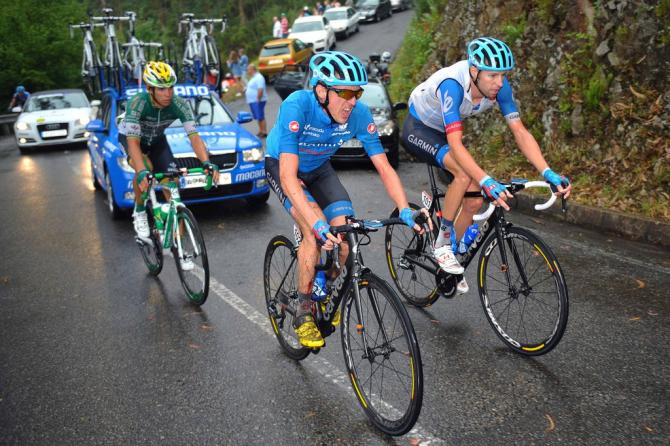
Contract
"I'm up for contract at the end of 2015 and I am talking with the team but never say never," he says. "Obviously it's almost like family at this point on this team and I've been very happy here and very successful. We don't know how that will change next year with the new sponsors coming in. That atmosphere could always change. At this moment in time, I'm really quite happy here."
Martin laughs off the notion that contract ruminations might prove a distraction in 2015 – "I pay someone else to think about that," he quips – and preparations for another tilt at the Ardennes Classics are of greater concern. Last year's experiment of training at altitude beforehand, for instance, will not be repeated.
"I had massive strength in my legs but I didn't feel as explosive or a snappy as usual at Amstel Gold Race," he says. "I'd only been down at sea level for three days and it was too soon. I definitely think it has a place in my training but I need to learn how to use it a bit differently. I don't think I'll do it before the Ardennes next year, but maybe before the Tour."
Incidentally, Martin needed some gentle nudging to describe the physical effects of his time at Sierra Nevada; his initial response had precious little to do with the bike. "Well, I met my girlfriend up there so it was a life-changing moment," he said coyly. "And Sierra Nevada is just a bit different to what guys do in Tenerife. You're not completely isolated. There are cafes and restaurants to hang around in too. It was a good experience."
No harm in a different perspective.

Barry Ryan was Head of Features at Cyclingnews. He has covered professional cycling since 2010, reporting from the Tour de France, Giro d’Italia and events from Argentina to Japan. His writing has appeared in The Independent, Procycling and Cycling Plus. He is the author of The Ascent: Sean Kelly, Stephen Roche and the Rise of Irish Cycling’s Golden Generation, published by Gill Books.